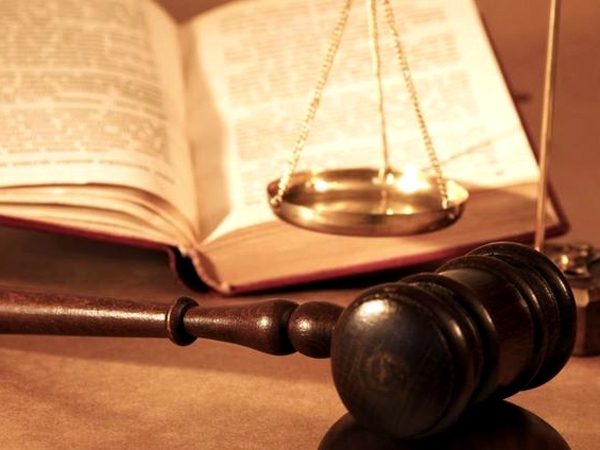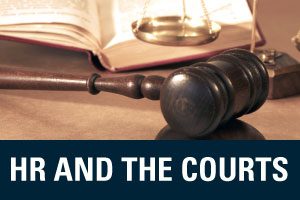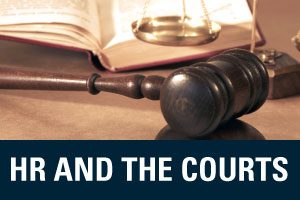by CUPA-HR | November 13, 2024
Each month, CUPA-HR General Counsel Ira Shepard provides an overview of several labor and employment law cases and regulatory actions with implications for the higher ed workplace. Here’s the latest from Ira.
More Than 35,000 University of California Service Employees Vote to Strike
The union representing over 35,000 service and patient care employees at all 10 campuses and five medical centers of the University of California reports that the membership has voted overwhelmingly to strike if collective bargaining contracts cannot be reached. The American Federation of State, County and Municipal Employees (AFSCME) Local 3299 is the union representing the service and patient care employees. The contract covering 25,000 patient care employees expired on July 31, 2024, and the contract covering 11,000 service employees expired November 7, 2024. The union stated it would provide the university with 10 days advance notice of any strike.
The union claims higher costs, especially for housing, has led to a major crisis for its members. The union has filed charges with the California Public Employee Relations Board alleging that the university has not shared information on UC finances as part of the bargaining process.
University Sues NLRB, Claims Requirement to Turn Over Information Violates FERPA
Vanderbilt University has sued the National Labor Relations Board in federal court, claiming that the agency’s requirement to turn over student information violates its obligations under the Family Educational Rights and Privacy Act. The NLRB and the United Auto Workers (UAW), the union seeking to organize the unit of graduate student employees, have requested information on about 2,200 graduate student employees, including work locations, shifts, and job classifications. Vanderbilt claims that providing such information would jeopardize the university’s ability to receive federal funds due to FERPA.
Vanderbilt is seeking an injunction requiring the NLRB to vacate the rules as applied so the university will not have to violate FERPA. Vanderbilt asserts that the NLRB’s rules are arbitrary and capricious and contrary to law given the conflict with the university’s obligations under FERPA (Vanderbilt University v. NLRB (M.D. Tenn. No. 3:24-cv-01301, Comp filed, 10/29/24)). Vanderbilt has asserted more than 80 students have objected to the disclosure of the information. We will follow developments in the case as they unfold.
Educator’s Anti-Male Bias Title IX Claim Can Go to Trial
The 2nd U.S. Circuit Court of Appeals ruled that an educator’s Title IX claims can go to trial. The educator alleges that a New York state school district’s harassment probe, which resulted in a ruling against him, violated his Title IX rights. He was accused by a student of inappropriate conduct and touching in his mobile agricultural education trailer. The 2nd Circuit noted that the alleged perpetrator was not given timely notice of the allegations, was not told what was specifically alleged, and was denied the chance to review the evidence and present evidence of his own.
The appeals court reversed the decision of the trial court, thereby giving the alleged perpetrator the right to a trial over the claim that the Title IX investigation was flawed and biased against him as a male (Schiebel v. Schoharie Central District (2nd Cir., No. 23-01080, 11/1/24)). The appeals court also noted that only one other student was interviewed, despite other students and adults allegedly being present, and that student did not confirm the allegations of the alleged victim.
Union Election Petitions Filed With NLRB Have Doubled Since Fiscal Year 2021
The NLRB reports that union election petitions for the most recent fiscal year have totaled 3,286, or more than double the amount in fiscal year 2021. The number of election petitions also amounts to a 27% increase over the previous fiscal year of 2023. The NLRB reported a 7% increase in the number of unfair labor practice filings it has received since fiscal year 2023.
The NLRB has jurisdiction over private colleges and universities. Public college and universities in most states are subject to state-based rules in conducting union election matters. Commentators generally report anecdotally that state-based union election petitions are also increasing. There have been increased reports of union organizing among higher ed student employee work groups.
NLRB General Counsel Says New College Athlete Employment Legislation Unnecessary
NLRB General Counsel Jennifer Abruzzo stated that there is no need for special legislation concerning student-athlete employment status, since there is existing legislation under the Fair Labor Standards Act, minimum wage laws, and the National Labor Relations Act (NLRA). No new laws, such as those promoted by the NCAA, are necessary, she said. Abruzzo made these remarks at a symposium hosted by Temple University in October. The general counsel pointed out that the situation under the FLSA is currently being played out in the courts.
Court of Appeals Reverses NLRB Order for Elon Musk to Delete Tweet That Workers Will Lose Stock Options if They Unionize
The 5th U.S. Circuit Court of Appeals reversed an earlier decision that affirmed the NLRB’s order against Musk and Tesla. In 2021, the NLRB ordered that Musk delete a tweet saying that employees of Tesla would lose stock options if they were to unionize. The appeals court ruled 9 to 8 that the NLRB order was not enforceable. The appeals court declined to rule one way or the other whether the tweet violated the NLRA, rather holding that the NLRB’s proposed remedy was not enforceable.
Bloomberg reported that the decision was a “blow” to the NLRB’s authority to enforce the labor law’s prohibitions on an employer’s allegedly coercive anti-union statements, particularly when they appear on social media.




